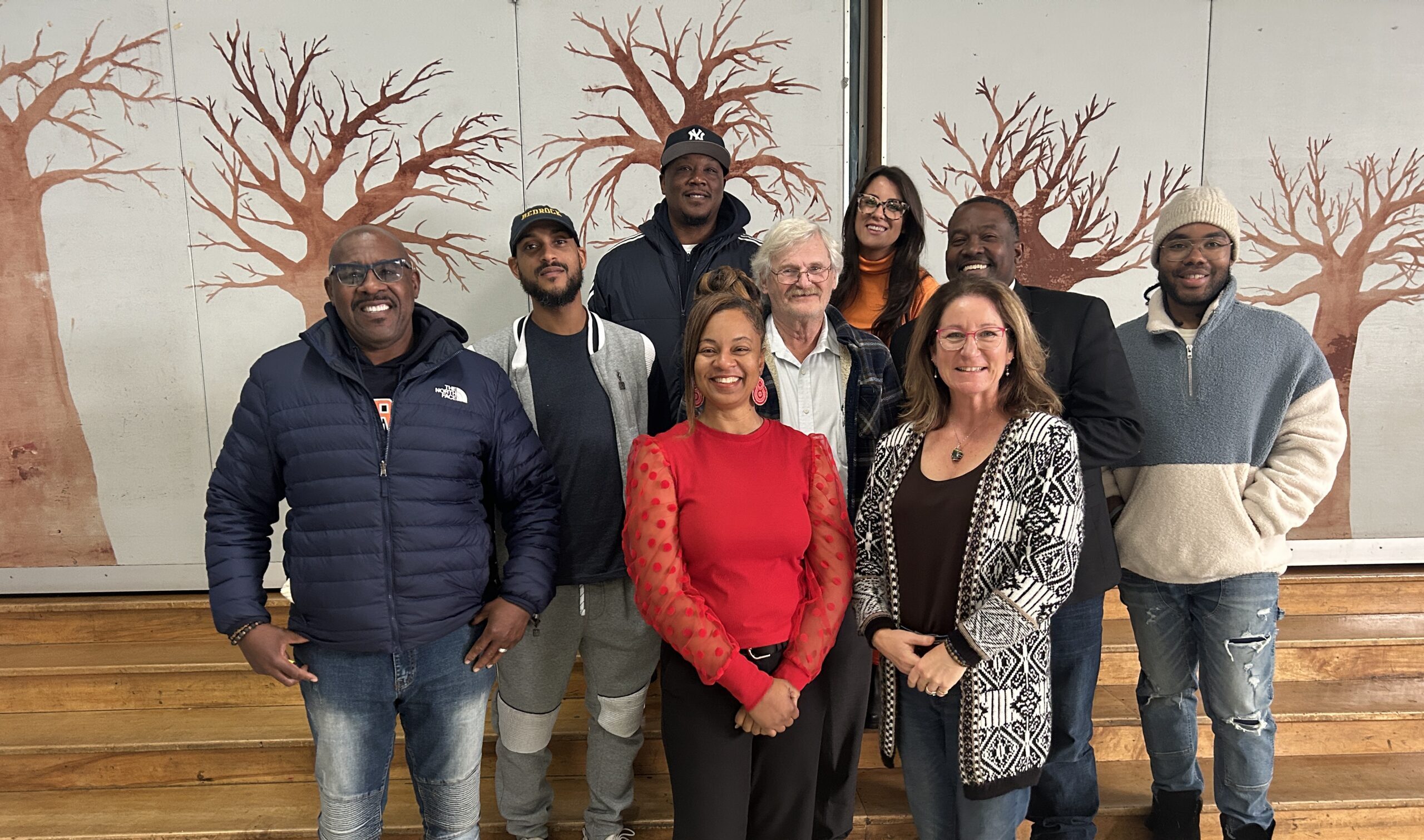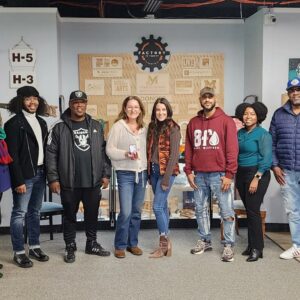
Members of SIPI's 2023 cohort program pose for a photo at the Flint Development Center. | Courtesy of SIPI, Inc.
FLINT, Michigan — Kimberly Coulter is a licensed Realtor and former school principal who dreams of connecting her two specialties—real estate and education—by opening up career pathways for the young people of Flint. After attending a six-session program designed to boost nonprofits and small social enterprises, she says she is better prepared to take on the work of building community and a small business.
“Through this program I learned a lot about myself. I learned that I like to be in control to ensure that things are done correctly and I have trouble asking for help,” she said. “Now I feel comfortable asking for help. I’m a better professional, I’m a better mother, and I’m a better Kimberly.”
The six-session cohort is offered through SIPI, Inc., a Flint-based corporation that works “to empower people and organizations to do great things.”
As of early 2024, SIPI has held six cohorts with representatives of more than 50 organizations, including nonprofit leaders, small business owners, and those with the germ of an idea looking for feedback or direction.
The next cohort is open to applicants and is set to start in April. In addition, SIPI’s ongoing series of single workshops with topics such as accounting software, social media, or grant writing allows participants to pick and choose one session or more depending on their needs.
At the heart of SIPI’s strategy in all of its work, not only the cohort, are relationships and trust-building. Areas of focus for the cohort’s sessions are tailored to the specific needs of the collective participants. Common themes relate to succession planning, avoiding burnout after the stress of delivering services through the pandemic, and adapting to a changed fundraising climate.
The cohort is one tool of many that SIPI uses to help create economic opportunities. Overall, SIPI’s main tactics include: assisting social enterprises to become self-sustaining; working with leaders of nonprofits to enhance organizational sustainability and impact; working with businesses and entrepreneurs to overcome barriers; and connecting local and grassroots organizations with community, state, and federal resources.
 Regarding the latter, SIPI was recently contracted to help Flint organizations apply for grant funding available through the American Rescue Plan Act.
Regarding the latter, SIPI was recently contracted to help Flint organizations apply for grant funding available through the American Rescue Plan Act.
With grant funding, SIPI has also provided embedded support services to Flint’s neighborhood hubs and other nonprofit organizations looking for assistance with specific organizational needs. Over a dozen local organizations, including the Flint Development Center, Latinx Technology and Community Center, St. Luke N.E.W. Life Center, and Urban Renaissance Center, have worked with SIPI in some way.
Steve Wolbert, co-founder of SIPI, emphasizes that they build on the strengths of the organizations served and find innovative ways to add capacity, rather than forcing visionary leaders to adopt new administrative tasks and responsibilities. Importantly, before the start of an engagement, SIPI and organizations mutually determine whether the assistance is beneficial and create a customized scope of work.
“The key is listening and crafting solutions based on what leaders are experiencing, rather than conducting a prescribed organizational assessment,” Wolbert said. “SIPI operates on a trust-based model, where we are walking alongside our partners to find these solutions, so we really understand the organization and the issue from the ground up.”
Many of the organizations that have worked with SIPI’s embedded services have succeeded in increasing their budgets and impact. Between 2016 and 2019, the budgets for the nine organizations SIPI worked with in that time frame increased by an average of 82% from the year in which the partnership began to the year that it ended.
The Ruth Mott Foundation began partnering with SIPI in 2016, at the start of the Foundation’s north Flint strategic plan, to bolster the capacity of community-based organizations. Since then, the Foundation has provided funding to SIPI for the embedded supports, cohort program, and other services that benefit not only the Foundation’s grant recipients but also emerging businesses, social enterprises, and nonprofit organizations.
SIPI Vice President Jordan Brown was hired in 2023. In the cohort program, Brown works closely with the participants to analyze their strengths and areas for development in service of their organization’s mission or business plan. Her philosophy is that you can’t do good for the community if you can’t do good for yourself.
“Nonprofit leaders and their teams are frankly burned out—it’s been a hard few years,” she said. “These individuals are the beacons for navigating injustices and traumas our community have faced, and they need space to navigate the struggles and gaps openly, reflect, and prioritize being their best self.”
The cohort space gives them the opportunity to do this, she said, and organizers have noticed this gives them a much-needed boost to continue doing meaningful work.
In many of its approaches, including the cohort, SIPI helps participants create an actionable plan with clear goals and tools to support it. For some, this could be a strategic plan that addresses operations, programming, HR, finance and more. For others who are earlier in the process, it could mean help in focusing a vision or mission.
In the case of Ian Agee, artist and videographer, he came to SIPI with a strong desire to help more Flint youth and adults take advantage of the abundance of arts programming available in the city. He joined the cohort in 2023 and SIPI helped him develop a vision. His fellow cohort participants became a sounding board for ideas on a name and potential partners.
“I feel like I could actually do this now,” he said. “I need to develop the full plan but I have a direction. Last year I didn’t know as much as I know today.”
At a recent gathering to reflect on and wrap up the 2023 cohort, participants spoke highly of the program and its impact.
Bernard Drew, who has many roles in the community, said the cohort helped narrow his focus. An engineer by training, he’s also a business professional and a pastor. Through his for-profit real estate venture, he has both emerging and established programs that help people in his community in a range of ways.
“It has been such a knowledgeable journey through the conversation with SIPI and others at the table,” he said. “We’ve built a family – a safe space to talk through ideas. What are the pros and cons and, if we do go that route, what is the best way through?”
Coulter also highlighted the connections she made with the people who participated alongside her.
“I like that it was a safe space and, regardless of where you are in the process, there’s something for you,” she said. “We are a network among ourselves now. We cheer each other on.”
To learn more about SIPI, visit their website or follow them on Facebook.